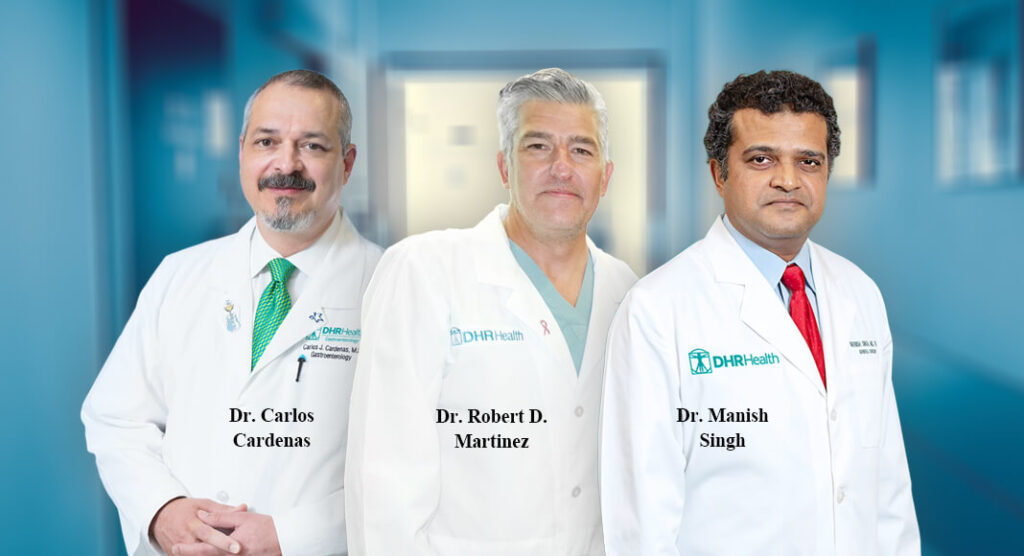
As originally published by Mega Doctor NEWS newsprint edition March 2021
It’s easy to say it, however, to reach that number of vaccinated residents takes a monumental effort. Nevertheless, the team at DHR Health managed it and they continue to vaccinate more residents.
The task has been humongous and seemed impossible to accomplish, but they have done it. It all starts by having a very select team with leaders like Dr. Manish Singh, DHR Health chief executive officer, Dr. Carlos Cardenas, chairman of the board at DHR Health, and Dr. Robert D. Martinez, the Chief Medical Officer. During an event to celebrate such an accomplishment, the three physicians thanked everyone involved to make it happen. They were clear to say that the team members deserve all the credit.
During this celebration at the Edinburg Conference Center at Renaissance, DHR Health vaccinated the 100,000th recipient. What an event!
It is important to highlight the work of one person, in particular, she is Sherri Abendroth, CHEP, the Director of Emergency Management at DHR Health. Sherri was responsible for writing and implementing the vaccination program. More in this issue.
On another note, in a series of experiments by Princess Margaret Cancer Center, researchers have created “super soldiers” of specific white blood cells to boost an anti-tumor response to kill cancerous cells.
Research led by Ph.D. candidate Helen Loo Yau, Post-doctoral fellow Dr. Emma Bell and Senior Scientist Dr. Daniel D. De Carvalho describes a DNA modifying epigenetic therapy that can transform immune killer T-cells into “super soldiers” by boosting their ability to kill cancer cells. More inside.
Other important news: Child Vision Screenings are being overlooked, but we should not forget they are important. Delayed checkups and routine screenings due to COVID-19 have been common practice.
Fear of catching the virus, even in medical facilities where strict COVID-19 safety measures are being followed, has many people putting off important in-person doctor’s appointments—including the kids’ pediatrician appointments—indefinitely. Some children also are missing out on vision screenings at school amid virtual learning. Learn more inside about what parents need to do about it.
More news for expectant mothers and their physicians – About 11% of women who carry to term will experience pre-labor rupture of membrane—a condition where the amniotic sac breaks open early, but labor doesn’t begin.
Typically, when a woman’s water breaks but labor doesn’t start, labor is induced. A new University of Michigan study found that expectant management –– waiting after the water breaks for labor to begin spontaneously –– did not significantly increase the risk to the fetus or the mother in healthy pregnancies.
Therefore, both induction and expectant management should be considered, and the decision should be made in the context of the mother’s wishes and health, said study co-author Ruth Zielinski, a nurse-midwife and U-M clinical professor in nursing. Read the rest of the story inside.
More innovation news: Smart speakers, such as Amazon Echo and Google Home, have proven adept at monitoring certain health care issues at home. For example, researchers at the University of Washington have shown that these devices can detect cardiac arrests or monitor babies breathing. But what about tracking something even smaller: the minute motion of individual heartbeats in a person sitting in front of a smart speaker?
UW researchers have developed a new skill for a smart speaker that monitors both regular and irregular heartbeats without physical contact.
The research team hopes that future versions could continuously monitor heartbeats while people are asleep, something that could help doctors diagnose conditions such as sleep apnea. Learn so much more inside.
Many more medical stories in this issue, Enjoy!










